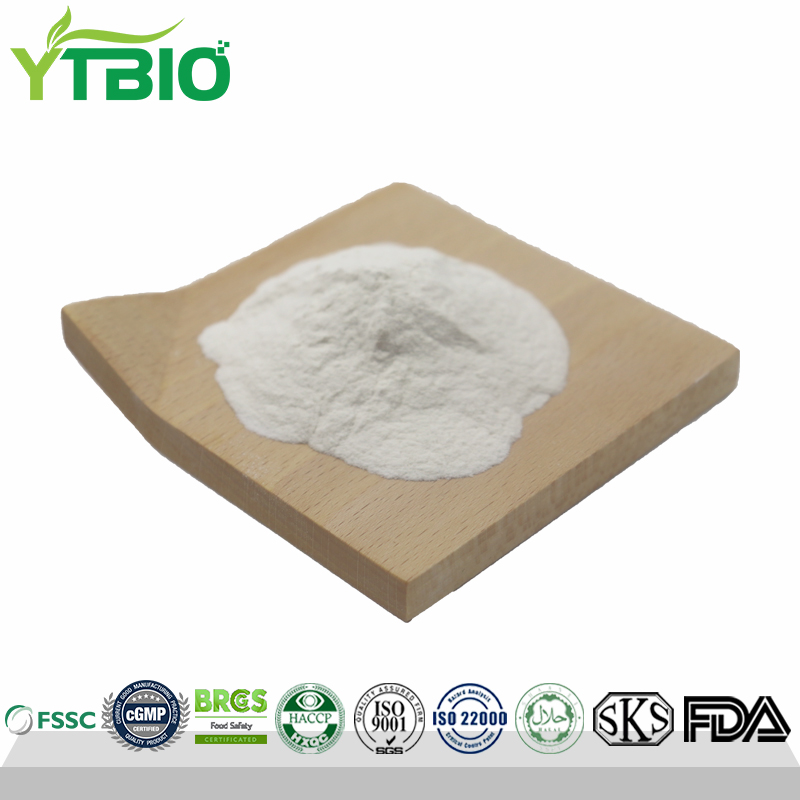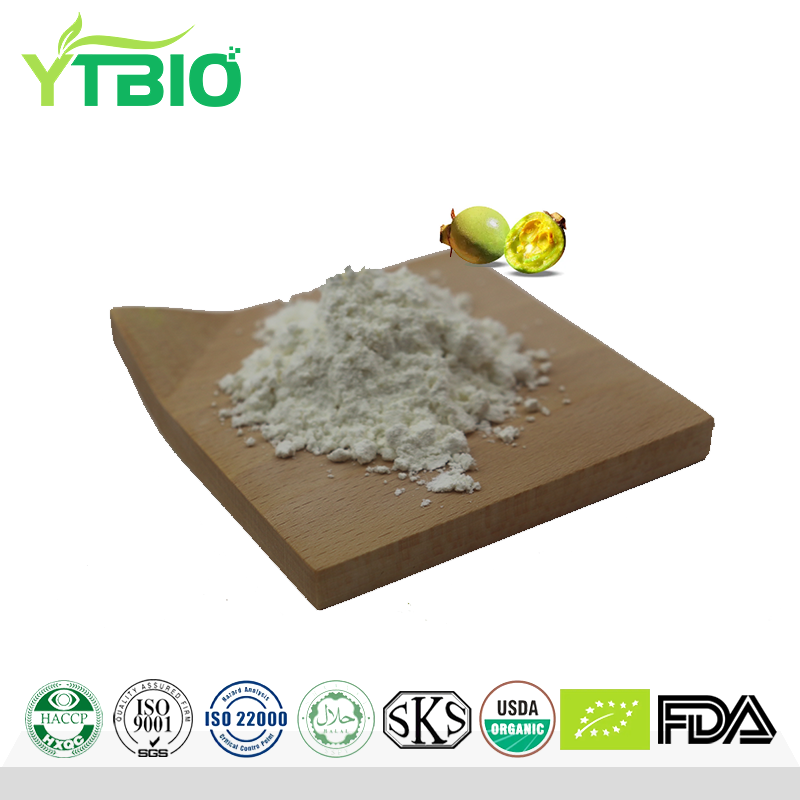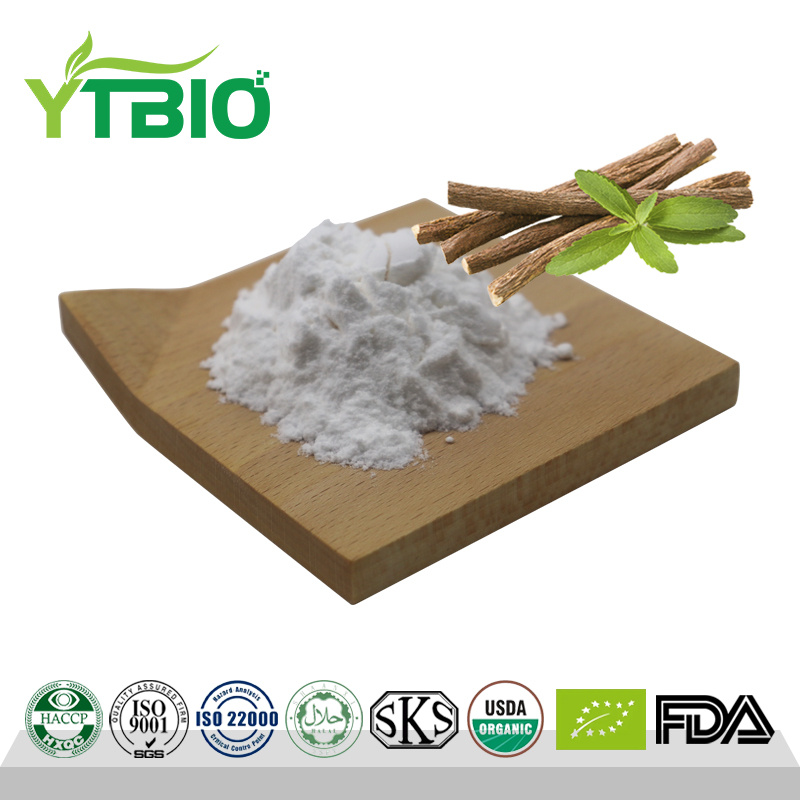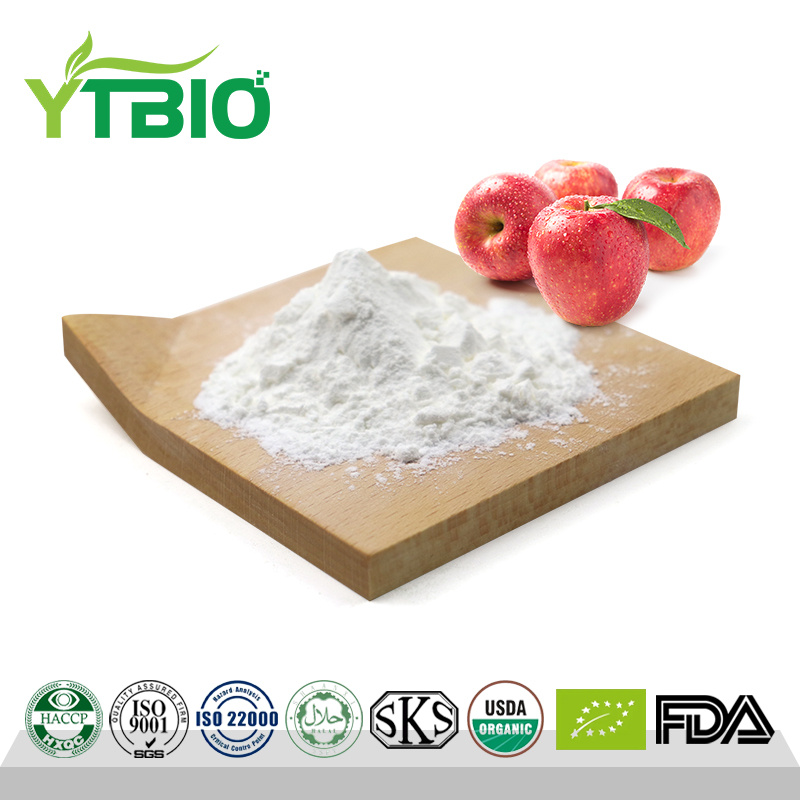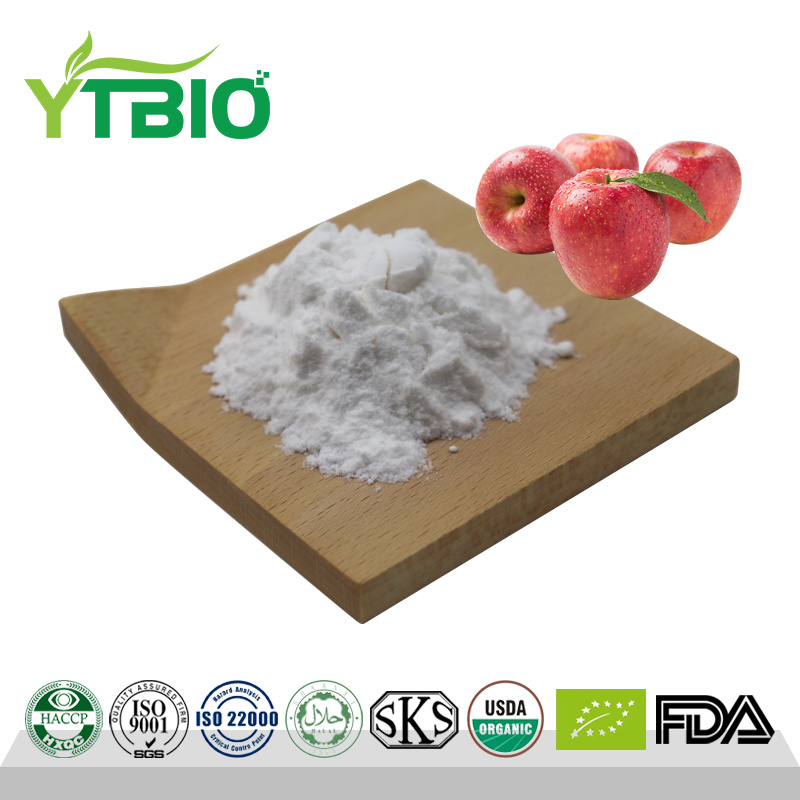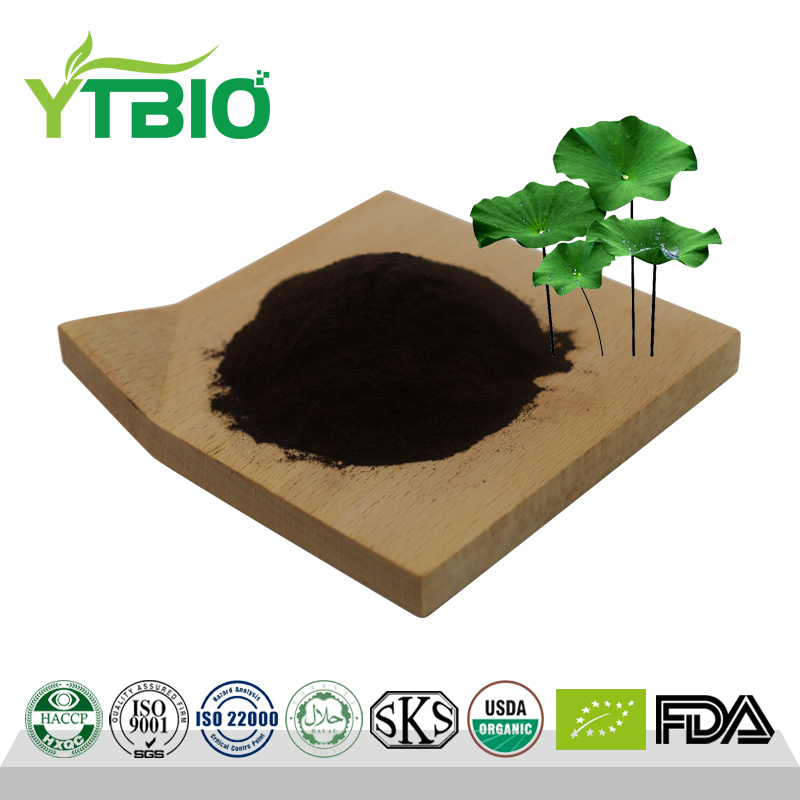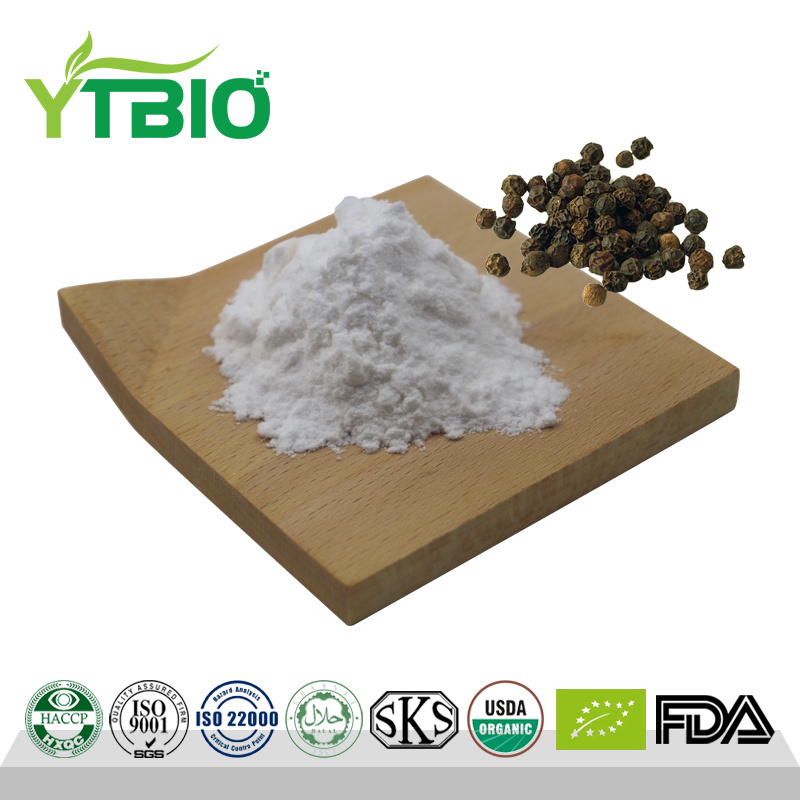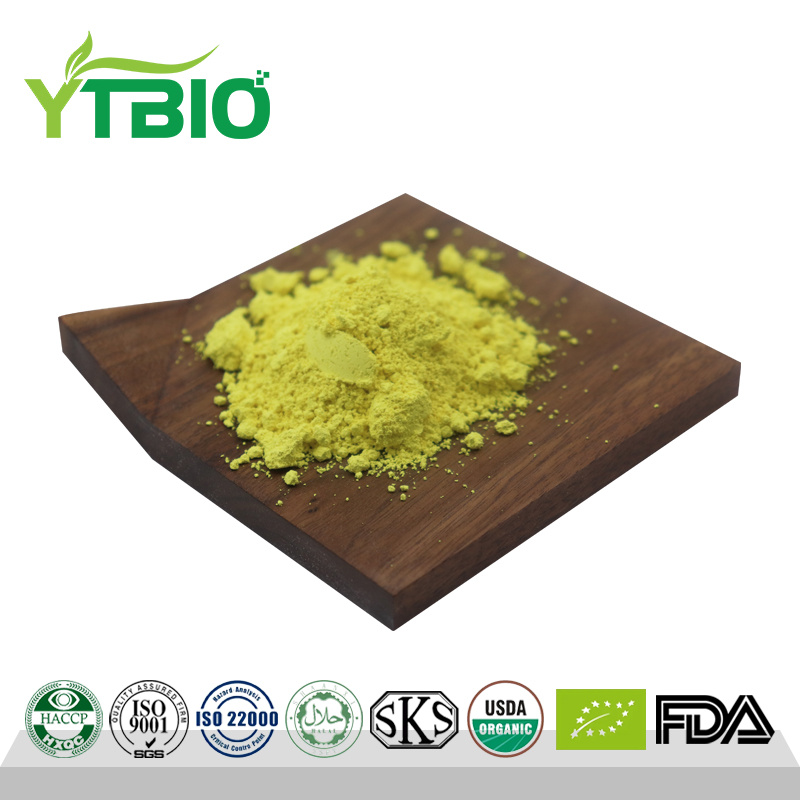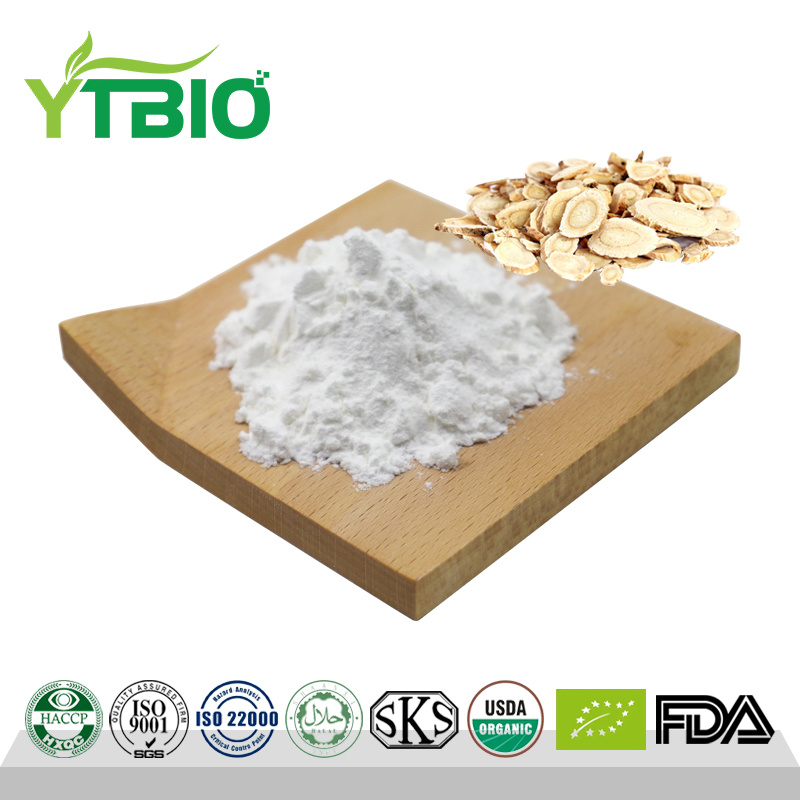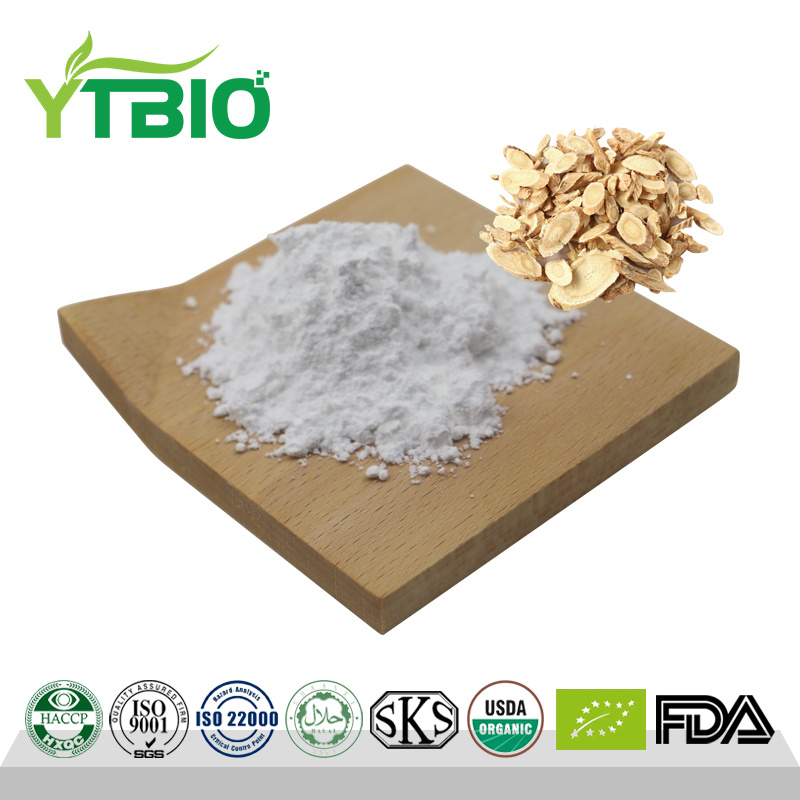Bulk Pure 80/200 Mesh Creatine Powder
About Creatine?
Creatine is a nitrogen-containing organic acid with the chemical formula C₄H₉N₃O₂, scientifically known as N-methylguanidinoacetic acid. It naturally exists in vertebrates, primarily stored in skeletal muscles, where approximately 95% of the body's creatine is distributed. Creatine exists in two forms: about two-thirds is stored as phosphocreatine, while one-third remains in a free form within muscles.
Physiological Functions of Creatine in the Human Body
● Energy Supply: Provides energy for muscle and nerve cells, playing a crucial role in short-duration, high-intensity exercises.
● Enhanced Athletic Performance: Supplementing with creatine can increase phosphocreatine levels in muscles, thereby improving explosive power, endurance, and overall athletic performance.
● Muscle Growth and Recovery: Accelerates protein synthesis, delays muscle fatigue, and promotes muscle growth and recovery, making it a commonly used nutritional supplement for bodybuilders and athletes.
● Health Benefits: Helps lower cholesterol, blood lipids, and blood sugar levels, slows aging, and improves energy metabolism.
Research indicates that creatine supplements not only enhance athletic performance but also contribute positively to muscle health and overall metabolism, making it a highly effective and safe nutritional supplement.
Mechanism of Creatine in Enhancing Athletic Performance
Creatine holds a special position among performance-enhancing supplements, being one of the most popular and well-researched supplements. It enhances energy production by converting into phosphocreatine, which serves as a crucial energy source for the production of adenosine triphosphate (ATP). ATP is the primary energy carrier in nearly all cells and provides energy for high-intensity exercise; however, its storage in muscles is limited.
When ATP is depleted, the body regenerates it through three main pathways:
● Rapid glycolysis
● Aerobic oxidation
● ATP-phosphocreatine system
Phosphocreatine does not directly supply energy to muscles. Instead, it donates a high-energy phosphate group to adenosine diphosphate (ADP), converting it back into ATP, thus sustaining muscular energy supply. The ATP-phosphocreatine system provides approximately 30 seconds of ATP energy during high-intensity activities such as sprinting, weightlifting, or strength training, making it a critical energy source for these types of exercises.
By supplementing with creatine, the storage of phosphocreatine in muscles increases, enabling faster ATP regeneration during high-intensity exercise. This not only enhances strength, explosive power, and muscle recovery but also significantly boosts overall athletic performance. As a result, creatine supplements have become an essential choice for athletes and fitness enthusiasts looking to enhance their performance.
What benefits does creatine bring?
Enhancing Athletic Performance
The primary function of creatine is to provide energy for muscle contraction. Studies have shown that creatine supplementation can enhance muscle strength and maximize power output, thereby improving overall athletic performance. During high-intensity exercise, creatine releases energy by breaking down phosphocreatine, aiding in the regeneration of adenosine triphosphate (ATP), the main energy source for muscle contraction. By increasing the availability of phosphate groups, creatine accelerates ATP regeneration and delays muscle fatigue. Supplementing with creatine increases phosphocreatine levels in muscles, boosting explosive power, endurance, and strength, which is particularly crucial for weightlifters, sprinters, and other athletes engaged in short-duration, high-intensity activities.
Reducing Injury Risk
Creatine supplementation helps reduce the incidence of muscle and skeletal injuries, dehydration, and muscle cramps while also offering neuroprotective benefits.
Promoting Muscle Growth
Creatine positively impacts muscle growth by stimulating muscle protein synthesis and reducing protein breakdown, thereby increasing muscle mass and volume. As a result, creatine is a commonly used supplement for bodybuilders and athletes during muscle-building and recovery phases.
Enhancing Exercise Recovery
Research indicates that creatine supplementation aids in the recovery process after sports-related injuries, promoting the repair and regeneration of damaged muscle tissue and reducing the risk of muscle atrophy. Additionally, creatine helps increase glycogen storage, reducing post-exercise inflammation and preventing the loss of muscle enzymes. Co-supplementation of creatine and carbohydrates has been found to be more effective in replenishing post-exercise glycogen stores than carbohydrates alone, which is crucial for preventing overtraining and enhancing recovery.
For example, marathon runners who supplemented with creatine exhibited reduced inflammation markers and muscle soreness, with less fluctuation in creatine kinase levels, an indicator of muscle damage. In studies on muscle recovery after exercise-induced injury, participants who supplemented with creatine demonstrated greater knee extension strength and significantly lower plasma creatine kinase levels than the control group.
Creatine Safety
A large number of studies have confirmed that reasonable creatine supplementation is safe, and its effects are reversible. After creatine supplementation reaches saturation levels, stopping supplementation for 4 to 6 weeks will allow creatine levels to return to baseline, meaning long-term supplementation does not suppress the endogenous synthesis of creatine. However, excessive intake of nitrogen-containing foods may increase the burden on the kidneys, potentially leading to kidney damage. Research shows that both short-term and long-term creatine supplementation do not have adverse effects on athletes' kidney function, muscles, or liver.
For example, a study involving 94 football players showed that 21 months of creatine supplementation had no negative impact on kidney function markers, muscle, or liver damage markers.
Application direction
Creatine has several fundamental functions, including increasing the water content of muscle cells, helping muscle cells store energy, and promoting protein synthesis. Synthetic creatine can be used in the following areas:
● Sports Nutrition: As a nutritional supplement, it helps skeletal muscles adapt to intense exercise and relieves fatigue in weakened individuals.
● Pharmaceutical Field: Used in the preparation of drugs for treating heart disease and respiratory insufficiency, as well as in formulations containing growth hormones.
● Health Foods: Blended into new types of health foods with anti-aging and physical recovery effects.
Creatine's multifunctional properties make it widely applicable in the fields of sports, medicine, and health foods.



